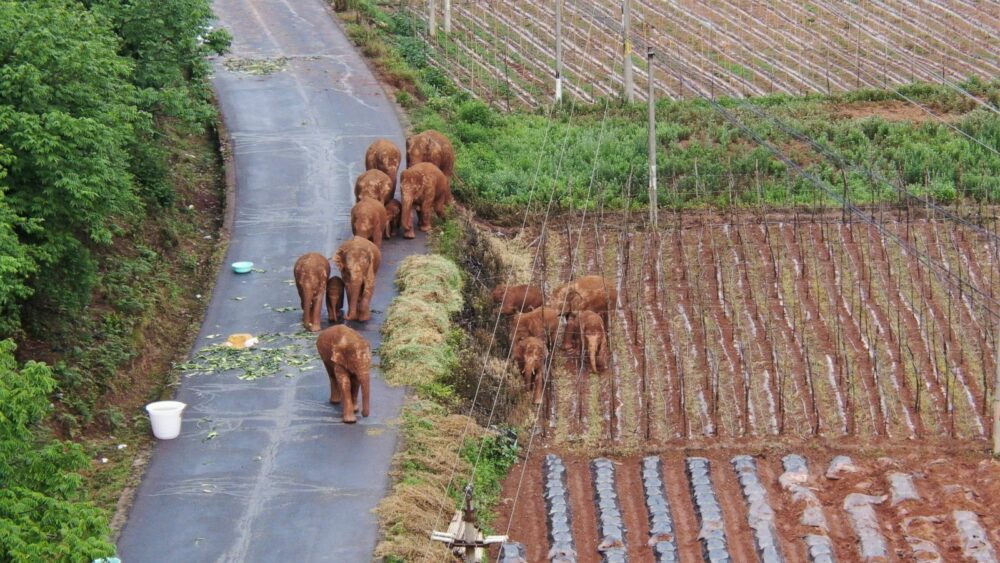Wandering Elephants With Lost Habitat: An Odyssey That Captivates Millions in China
China’s famous herd of wandering elephants is being monitored by dozens of drones around the clock, where ever they go by police. They are being watched by millions in China, whether they sleep or eat.
The recent internet sensation of China – this wandering herd of about 15 elephants and calves – is lost and poised to be wreaking havoc to the country’s southwest.
The herd of elephants trekked more than 500 kilometers across the country, away from their natural habitat in South China. People are transfixed as elephants crush down the crops, causing damage. They roamed across many towns, prompting the residents to stay indoors.
According to the country’s media, the Yunnan forest fire brigade stated that a team of eight have been monitoring the elephants 24 hours a day.

Image: Drone DJ
Recently, the herd was tracked in a forest outside the Xiyang town, about 90km southwest of Kunming city, returning to where they came from. More than 410 emergency personnel, 374 transport facility and 14 drones were deployed with nearly two tonnes of elephant food.
Also Read: Asian Elephant Populations decline in India Despite Conservation Efforts
But the most important question is: Why did a herd of 15 elephants move away from their natural habitat in the first place? It is has left the wildlife authorities baffled. Despite being entertaining, biologists look at the situation as a warning of habitat degradation.

Image: ABC News
Asian elephants are one of the most protected species in China, with 300 of them residing in Yunnan. Apparently, over the last few decades, agriculture has resulted in the loss of elephant habitats, dismissing the herds away from each other and prompting them to stay isolated in shrinking pieces of habitat. This has led to increased human-elephant conflict in the 10 years.
Even though the authorities have been trying to steer the elephants away from populated areas, the only way to prevent such episodes is to restore the habitat of wandering elephants and protect natural resources. The buffer zone between elephants and humans is increasing, causing danger for residents nearby and elephants as well.
Update:
China’s wildlife authorities have planned to guide the wandering herd of wild Asian elephants in southwest China’s Yunnan Province to a suitable habitat. The animals will be directed with food baits and blocking of roads, which would be much easier with the recent drop in rainfalls and temperature decline.
Local authorities have mobilized 319 personnel, over 600 vehicles and 18 drones to monitor the herd and prevent human-elephant conflicts. A total of 3,548 people were evacuated to make suitable conditions and a human-free zone to move the elephants to a proper habitat.
Via: CNN


